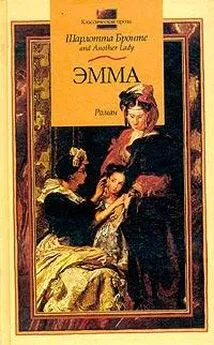Шарлотта Бронте - Лучшие романы сестер Бронте / The best of the Brontë sisters
- Название:Лучшие романы сестер Бронте / The best of the Brontë sisters
- Автор:
- Жанр:
- Издательство:Литагент «Эксмо»334eb225-f845-102a-9d2a-1f07c3bd69d8
- Год:2013
- Город:Москва
- ISBN:978-5-699-61892-7
- Рейтинг:
- Избранное:Добавить в избранное
-
Отзывы:
-
Ваша оценка:
Шарлотта Бронте - Лучшие романы сестер Бронте / The best of the Brontë sisters краткое содержание
«Иностранный язык: учимся у классиков» – это только оригинальные тексты лучших произведений мировой литературы. Эти книги станут эффективным и увлекательным пособием для изучающих иностранный язык на хорошем «продолжающем» и «продвинутом» уровне. Они помогут эффективно расширить словарный запас, подскажут, где и как правильно употреблять устойчивые выражения и грамматические конструкции, просто подарят радость от чтения. В конце книги дана краткая информация о культуроведческих, страноведческих, исторических и географических реалиях описываемого периода, которая поможет лучше ориентироваться в тексте произведения.
Серия «Иностранный язык: учимся у классиков» адресована широкому кругу читателей, хорошо владеющих английским языком и стремящихся к его совершенствованию.
Лучшие романы сестер Бронте / The best of the Brontë sisters - читать онлайн бесплатно ознакомительный отрывок
Интервал:
Закладка:
‘Are these yours?’ said he, carelessly taking up one of the drawings.
‘No, they are Miss Hargrave’s.’
‘Oh! well, let’s have a look at them.’
And, regardless of Miss Hargrave’s protestations that they were not worth looking at, he drew a chair to my side, and receiving the drawings, one by one from my hand, successively scanned them over, and threw them on the table, but said not a word about them, though he was talking all the time. I don’t know what Milicent Hargrave thought of such conduct, but I found his conversation extremely interesting; though, as I afterwards discovered, when I came to analyse it, it was chiefly confined to quizzing the different members of the company present; and albeit he made some clever remarks, and some excessively droll ones, I do not think the whole would appear anything very particular, if written here, without the adventitious aids of look, and tone, and gesture, and that ineffable but indefinite charm, which cast a halo over all he did and said, and which would have made it a delight to look in his face, and hear the music of his voice, if he had been talking positive nonsense – and which, moreover, made me feel so bitter against my aunt when she put a stop to this enjoyment, by coming composedly forward, under pretence of wishing to see the drawings, that she cared and knew nothing about, and while making believe to examine them, addressing herself to Mr. Huntingdon, with one of her coldest and most repellent aspects, and beginning a series of the most common-place and formidably formal questions and observations, on purpose to wrest his attention from me – on purpose to vex me, as I thought: and having now looked through the portfolio, I left them to their tête-à-tête , and seated myself on a sofa, quite apart from the company – never thinking how strange such conduct would appear, but merely to indulge, at first, the vexation of the moment, and subsequently to enjoy my private thoughts.
But I was not left long alone, for Mr. Wilmot, of all men the least welcome, took advantage of my isolated position to come and plant himself beside me. I had flattered myself that I had so effectually repulsed his advances on all former occasions, that I had nothing more to apprehend from his unfortunate predilection; but it seems I was mistaken: so great was his confidence, either in his wealth or his remaining powers of attraction, and so firm his conviction of feminine weakness, that he thought himself warranted to return to the siege, which he did with renovated ardour, enkindled by the quantity of wine he had drunk – a circumstance that rendered him infinitely the more disgusting; but greatly as I abhorred him at that moment, I did not like to treat him with rudeness, as I was now his guest, and had just been enjoying his hospitality; and I was no hand at a polite but determined rejection, nor would it have greatly availed me if I had, for he was too coarse-minded to take any repulse that was not as plain and positive as his own effrontery. The consequence was, that he waxed more fulsomely tender, and more repulsively warm, and I was driven to the very verge of desperation, and about to say I know not what, when I felt my hand, that hung over the arm of the sofa, suddenly taken by another and gently but fervently pressed. Instinctively, I guessed who it was, and, on looking up, was less surprised than delighted to see Mr. Huntingdon smiling upon me. It was like turning from some purgatorial fiend to an angel of light, come to announce that the season of torment was past.
‘Helen,’ said he (he frequently called me Helen, and I never resented the freedom), ‘I want you to look at this picture. Mr. Wilmot will excuse you a moment, I’m sure.’
I rose with alacrity. He drew my arm within his, and led me across the room to a splendid painting of Vandyke’s that I had noticed before, but not sufficiently examined. After a moment of silent contemplation, I was beginning to comment on its beauties and peculiarities, when, playfully pressing the hand he still retained within his arm, he interrupted me with, – ‘Never mind the picture: it was not for that I brought you here; it was to get you away from that scoundrelly old profligate yonder, who is looking as if he would like to challenge me for the affront.’
‘I am very much obliged to you,’ said I. ‘This is twice you have delivered me from such unpleasant companionship.’
‘Don’t be too thankful,’ he answered: ‘it is not all kindness to you; it is partly from a feeling of spite to your tormentors that makes me delighted to do the old fellows a bad turn, though I don’t think I have any great reason to dread them as rivals. Have I, Helen?’
‘You know I detest them both.’
‘And me?’
‘I have no reason to detest you.’
‘But what are your sentiments towards me? Helen – Speak! How do you regard me?’
And again he pressed my hand; but I feared there was more of conscious power than tenderness in his demeanour, and I felt he had no right to extort a confession of attachment from me when he had made no correspondent avowal himself, and knew not what to answer. At last I said, – ‘How do you regard me?’
‘Sweet angel, I adore you! I – ’
‘Helen, I want you a moment,’ said the distinct, low voice of my aunt, close beside us. And I left him, muttering maledictions against his evil angel.
‘Well, aunt, what is it? What do you want?’ said I, following her to the embrasure of the window.
‘I want you to join the company, when you are fit to be seen,’ returned she, severely regarding me; ‘but please to stay here a little, till that shocking colour is somewhat abated, and your eyes have recovered something of their natural expression. I should be ashamed for anyone to see you in your present state.’
Of course, such a remark had no effect in reducing the ‘shocking colour’; on the contrary, I felt my face glow with redoubled fires kindled by a complication of emotions, of which indignant, swelling anger was the chief. I offered no reply, however, but pushed aside the curtain and looked into the night – or rather into the lamp-lit square.
‘Was Mr. Huntingdon proposing to you, Helen?’ inquired my too watchful relative.
‘No.’
‘What was he saying then? I heard something very like it.’
‘I don’t know what he would have said, if you hadn’t interrupted him.’
‘And would you have accepted him, Helen, if he had proposed?’
‘Of course not – without consulting uncle and you.’
‘Oh! I’m glad, my dear, you have so much prudence left. Well, now,’ she added, after a moment’s pause, ‘you have made yourself conspicuous enough for one evening. The ladies are directing inquiring glances towards us at this moment, I see: I shall join them. Do you come too, when you are sufficiently composed to appear as usual.’
‘I am so now.’
‘Speak gently then, and don’t look so malicious,’ said my calm, but provoking aunt. ‘We shall return home shortly, and then,’ she added with solemn significance, ‘I have much to say to you.’
So I went home prepared for a formidable lecture. Little was said by either party in the carriage during our short transit homewards; but when I had entered my room and thrown myself into an easy-chair, to reflect on the events of the day, my aunt followed me thither, and having dismissed Rachel, who was carefully stowing away my ornaments, closed the door; and placing a chair beside me, or rather at right angles with mine, sat down. With due deference I offered her my more commodious seat. She declined it, and thus opened the conference: ‘Do you remember, Helen, our conversation the night but one before we left Staningley?’
‘Yes, aunt.’
‘And do you remember how I warned you against letting your heart be stolen from you by those unworthy of its possession, and fixing your affections where approbation did not go before, and where reason and judgment withheld their sanction?’
‘Yes; but my reason – ’
‘Pardon me – and do you remember assuring me that there was no occasion for uneasiness on your account; for you should never be tempted to marry a man who was deficient in sense or principle, however handsome or charming in other respects he might be, for you could not love him; you should hate – despise – pity – anything but love him – were not those your words?’
‘Yes; but – ’
‘And did you not say that your affection must be founded on approbation; and that, unless you could approve and honour and respect, you could not love?’
‘Yes; but I do approve, and honour, and respect – ’
‘How so, my dear? Is Mr. Huntingdon a good man?’
‘He is a much better man than you think him.’
‘That is nothing to the purpose. Is he a good man?’
‘Yes – in some respects. He has a good disposition.’
‘Is he a man of principle?’
‘Perhaps not, exactly; but it is only for want of thought. If he had someone to advise him, and remind him of what is right – ’
‘He would soon learn, you think – and you yourself would willingly undertake to be his teacher? But, my dear, he is, I believe, full ten years older than you – how is it that you are so beforehand in moral acquirements?’
‘Thanks to you, aunt, I have been well brought up, and had good examples always before me, which he, most likely, has not; and, besides, he is of a sanguine temperament, and a gay, thoughtless temper, and I am naturally inclined to reflection.’
‘Well, now you have made him out to be deficient in both sense and principle, by your own confession – ’
‘Then, my sense and my principle are at his service.’
‘That sounds presumptuous, Helen. Do you think you have enough for both; and do you imagine your merry, thoughtless profligate would allow himself to be guided by a young girl like you?’
‘No; I should not wish to guide him; but I think I might have influence sufficient to save him from some errors, and I should think my life well spent in the effort to preserve so noble a nature from destruction. He always listens attentively now when I speak seriously to him (and I often venture to reprove his random way of talking), and sometimes he says that if he had me always by his side he should never do or say a wicked thing, and that a little daily talk with me would make him quite a saint. It may he partly jest and partly flattery, but still – ’
‘But still you think it may be truth?’
‘If I do think there is any mixture of truth in it, it is not from confidence in my own powers, but in his natural goodness. And you have no right to call him a profligate, aunt; he is nothing of the kind.’
‘Who told you so, my dear? What was that story about his intrigue with a married lady – Lady who was it? – Miss Wilmot herself was telling you the other day?’
‘It was false – false!’ I cried. ‘I don’t believe a word of it.’
‘You think, then, that he is a virtuous, well-conducted young man?’
‘I know nothing positive respecting his character. I only know that I have heard nothing definite against it – nothing that could be proved, at least; and till people can prove their slanderous accusations, I will not believe them. And I know this, that if he has committed errors, they are only such as are common to youth, and such as nobody thinks anything about; for I see that everybody likes him, and all the mammas smile upon him, and their daughters – and Miss Wilmot herself – are only too glad to attract his attention.’
‘Helen, the world may look upon such offences as venial; a few unprincipled mothers may be anxious to catch a young man of fortune without reference to his character; and thoughtless girls may be glad to win the smiles of so handsome a gentleman, without seeking to penetrate beyond the surface; but you, I trusted, were better informed than to see with their eyes, and judge with their perverted judgment. I did not think you would call these venial errors!’
Читать дальшеИнтервал:
Закладка:










